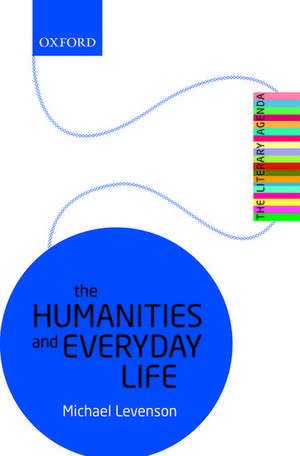The Humanities and Everyday Life: The Literary Agenda: The Literary Agenda
Autor Michael Levensonen Limba Engleză Paperback – 16 noi 2017
Preț: 134.34 lei
Preț vechi: 148.89 lei
-10% Nou
Puncte Express: 202
Preț estimativ în valută:
25.71€ • 26.91$ • 21.40£
25.71€ • 26.91$ • 21.40£
Carte tipărită la comandă
Livrare economică 19-25 martie
Preluare comenzi: 021 569.72.76
Specificații
ISBN-13: 9780198808299
ISBN-10: 0198808291
Pagini: 192
Ilustrații: 1 Figure
Dimensiuni: 130 x 197 x 11 mm
Greutate: 0.19 kg
Editura: OUP OXFORD
Colecția OUP Oxford
Seria The Literary Agenda
Locul publicării:Oxford, United Kingdom
ISBN-10: 0198808291
Pagini: 192
Ilustrații: 1 Figure
Dimensiuni: 130 x 197 x 11 mm
Greutate: 0.19 kg
Editura: OUP OXFORD
Colecția OUP Oxford
Seria The Literary Agenda
Locul publicării:Oxford, United Kingdom
Notă biografică
Michael Levenson is William B. Christian Professor of English at the University of Virginia and author of A Genealogy of Modernism (Cambridge University Press, 1984), Modernism and the Fate of Individuality (Cambridge University Press, 1990), The Spectacle of Intimacy (co-authored with K. Chase, Princeton University Press, 2000), and Modernism (Yale University Press, 2011); and editor of the Cambridge Companion to Modernism (2000, 2nd edition 2011). Professor Levenson has published essays in such journals as ELH, Novel, Modernism / Modernity, The New Republic, Wilson Quarterly, and Raritan. He has been chair of the English Department at the University of Virginia and is the founding director of the Institute of the Humanities and Global Cultures. His teaching has ranged through literary history from the eighteenth century to the present, and more recently toward global cultural studies.










